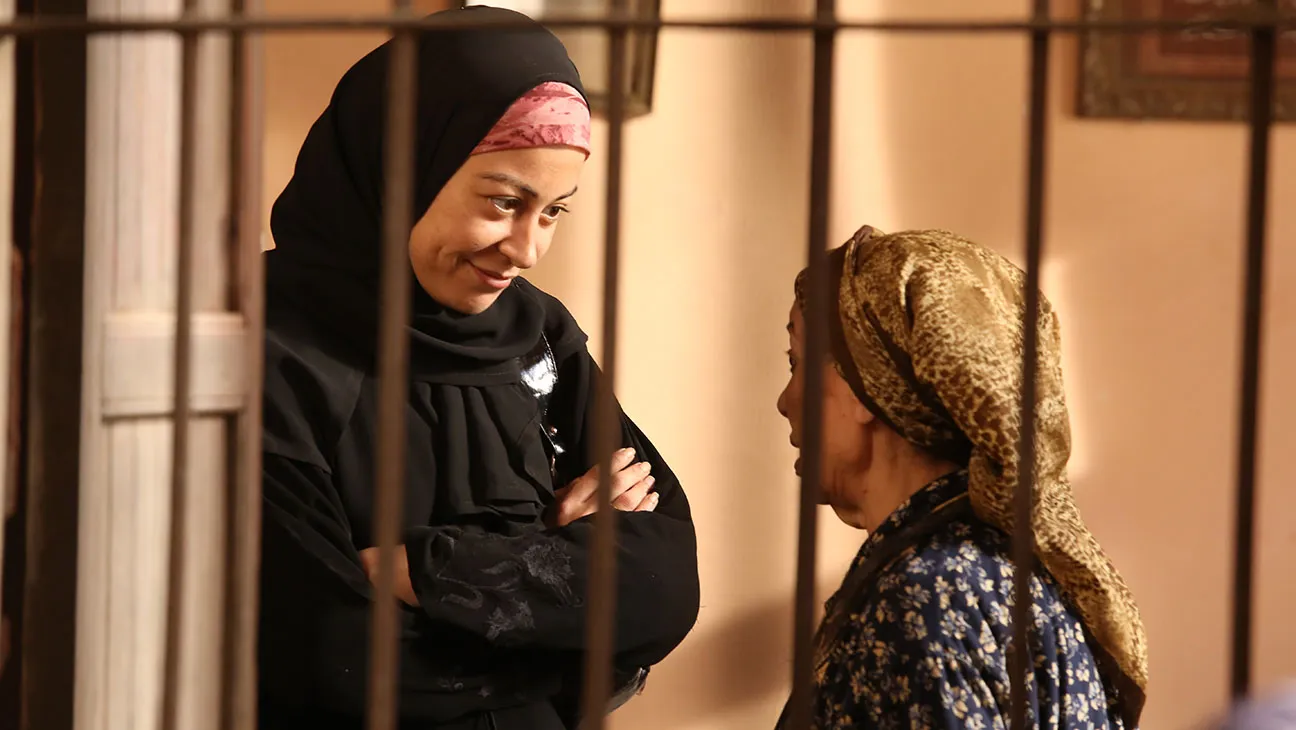
‘Nawara’: Dubai Review
The hollywood reporter ○ 22 December 2015
Director Hala Khalil chronicles the aftermath of the Tahrir Square revolution on a young woman who works as a maid for Egypt’s elite.
Hala Khalil, the award-winning director of Cut and Paste and one of the bright new voices in Egyptian cinema, brings her light touch with social drama and keen feeling for women’s problems to Nawara. The saga of a poor housemaid in the aftermath of the Tahrir Square uprising brims over with uncomfortable truths and irony, boldly questioning the outcome of the revolution. Led by an angelic Menna Shalabi in the main role, the film is absorbing in a daytime drama sort of way: One longs for the maid and her equally poor husband Aly to find happiness, while knowing that even worse misfortunes are likely to befall them before the curtains close. Despite this and allowing for an overlong running time, it is the Egyptian art film of the moment, and its female viewpoint should help it find limited release, with more festival support following its Dubai bow.
The noble goals of bread, freedom and equality that spurred Egyptians to take to the streets and oust president Hosni Mubarak in the spring of 2011 brings hope to the slums of Cairo. Nawara lives in a room with her grandmother, who sells falafel from their street-level window, and shares a common bathroom with other tenants. Since a corrupt water department means there’s no running water, she lugs heavy tanks from a fountain first thing every morning. The narrow, picturesque streets where the girl’s husband Aly mans a repair shop are also colorfully atmospheric. Though Nawara and Aly have been hitched for years, they are still waiting for a place of their own to consummate the marriage — and that looks farther off than ever. In fact, the revolution, instead of distributing the deposed president’s stolen millions to the people as it promised, has paralyzed the economy, making life more miserable than ever. Aly can’t find a hospital bed for his sick father, much less pay for an urgent operation. As the characters in Khalil’s previous film Cut and Paste concluded, Egypt is a country “reserved for others,” not for the poor.
But our sunny heroine seems impervious to sadness or doubt. Never without a kind smile on her face, she hops from bus to minivan on her way to work in a gated community with swimming pools and golf courses in a green, outlying area of the city. The wealthy household belongs to Ossama (Mahmoud Hemeda), a distinguished former minister and parliament member who has employed Nawara since her mother brought her to work as a child. All around them, rich families like theirs are fleeing the country, taking their wealth with them. They leave the girl and an old caretaker in charge of their empty manse, with strict orders to tell no one they have gone.
Quiet and reserved, naïve about politics and wrapped in a modest hijab, Shalabi is at the opposite extreme of her brassy, meddling heroine in Yousry Nasrallah’s After the Battle. Yet despite this guise, she gives Nawara the memorable, almost mythic personality of a modern-day saint, so concerned about others that she neglects her own well-being. Her overly generous interpretation of other people’s honesty and basic decency brings the film to a dismaying conclusion.
Though there’s nothing too new here, the story is well narrated and engrossing. The easy irony of the final scene could just as well have been avoided with a slicker finale that might have justified Nawara’s bottom-line optimism.
Venue: Dubai Film Festival (Muhr Feature)